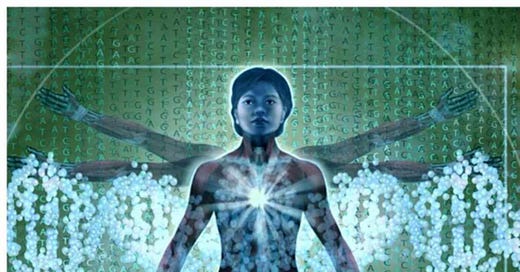Move over, Post-Modernism. Post-Humanism is here. In fact, it’s been around for some time.
During my undergraduate studies, between 2015-2019, I took more than a few courses that flirted with post-human ideas as well as a couple that addressed them directly.
One poorly written but popular book, which some of you will have unfortunately heard of, is Ray Kurzweil’s “The Singularity is Near: When Humans Transcend Reality” published in 2005. Kurzweil followed this up in 2022 with the ingeniously titled “The Singularity is Nearer: When We Merge with AI” (look for his next book “The Singularity is Much, Much Nearer: We’re So Close” to be published in 2035).
Kurzweil is often lumped in with the trans-humanists, but in reality his is a post-human project. These are broad categories and worthy of much deeper study, but as an introduction I believe it is fair to say that while trans-humanism seeks to augment the human being through biological and other forms of technology, post-humanism sees the category of human as something that should be replaced, either for the sake of the planet (this position has grown side by side with the ecological movement of the late 20th and early 21st century), the expansion of our powers and possibilities as beings, or both.
Whereas post-modern theories were and remain critical of humanism, and while trans-humanism, which sprung from the loins of the eugenics movement, seeks to control and augment human life on earth, post-humanism has a more radical aim—the complete replacement of the human and our destructive anthroprocentism.
Once you start looking for it, you’ll see it everywhere in popular culture. And it’s been at the cutting edge of discussion in the Academy for over two decades. This is why I find it quaint albeit frustrating when popular figures like Jordan Peterson go on and on about post-modernism. We’re far beyond that now.
How does this relate to poetry?
Well, for the poet as much as the critic it is important to martial ones resources and use them wisely. Harold Bloom, for all his faults, began his Quixotic fight against postmodernism in English departments across the US just before the Academy, which the arts are downstream of, was turning towards more radical enterprises; Enterprises, I might add, which Bloom’s professed gnosticism would have left him little ground to protest against with any strength.
Many formalist or more “traditional” poets of today spend a good deal of time wringing their hands over battles lost decades ago, or quibbling with establishment figures who themselves are too far behind the times to produce anything fruitful. The game has changed. Our tradition means nothing if we are not human.
These considerations are in no small part what lead me to the proposal of a possible, if only partial, poetic solution in what I’ve termed Operation Dinner Party, the reintegration of poetry into one of the most fundamental aspects of being human: the shared meal.
There will be no shared meals after we merge with AI or transmogrify ourselves into honey bun dragon wizards, and I can’t imagine there will be any poetry either.
Christians believe that each human is the image bearer of the Creator of Heaven and Earth, and as such we’ve been given certain responsibilities towards our fellow man, as well as this planet.
For those called to it, it is for us to decide what contemporary poetry should become. That is, if we want to keep it, along with our humanity.
P.S.
This piece was inspired by an excellent, recent lecture by Dr. Scott Masson, whose work I’ve recommended before and will continue to praise:





